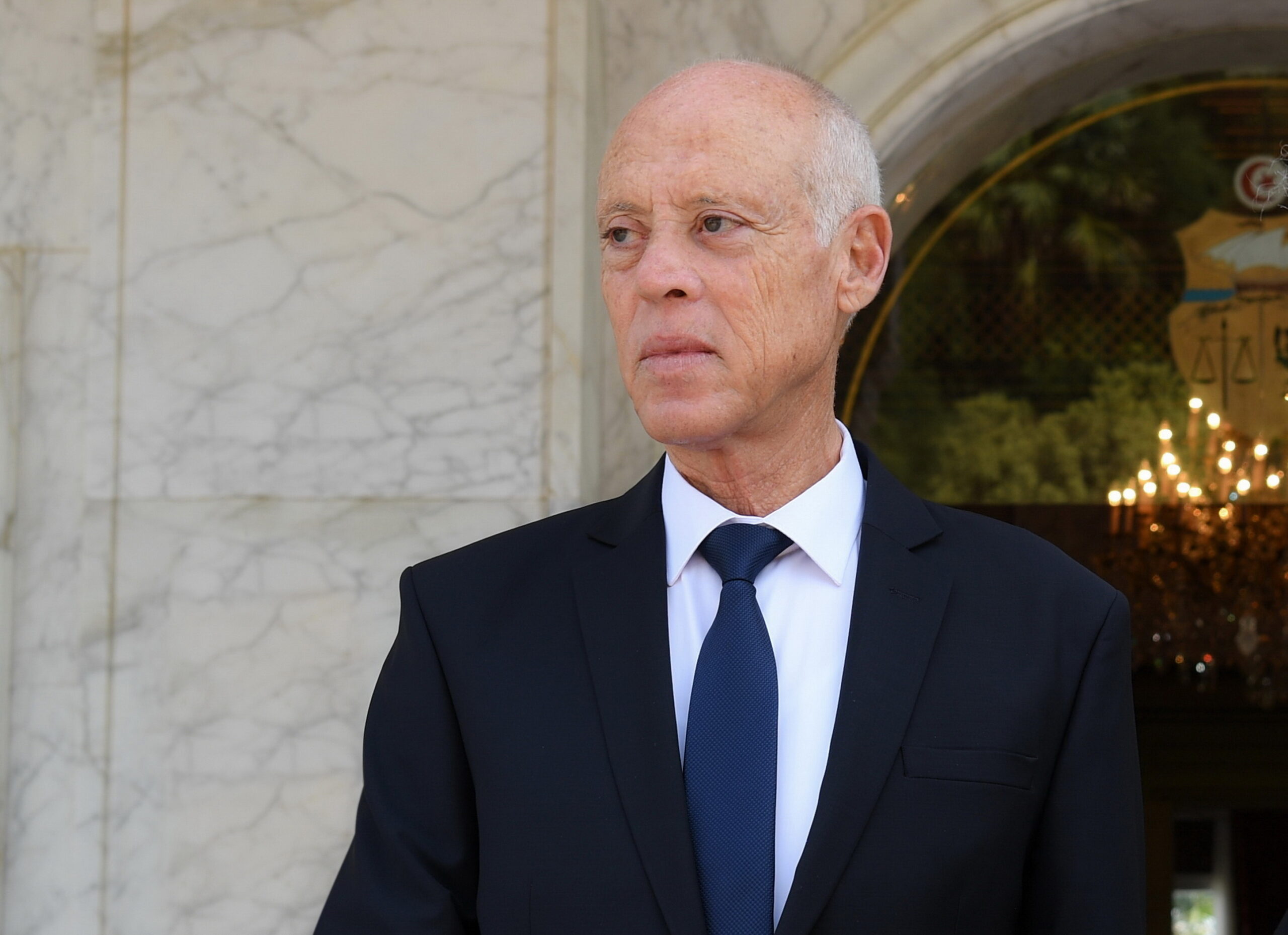On Wednesday, July 3, the office of Tunisian President Kais Saied released a statement calling for the presidential election to be held on October 6. Later that day, Lotfi Mraihi, the secretary-general of the opposition Republican Union Party and a presidential candidate, was arrested over allegations of possible money laundering.
Many Tunisian opposition leaders have “accused Saied’s government of exerting pressure on the judiciary to track down Saied’s rivals in the 2024 elections and pave the way for him to win a second term.” Several of these opposition figures are now imprisoned or facing prosecution.
Regional sources report on the upcoming election and arrests:
Arab News noted that President Saied has set the election to take place on October 6, weeks before the end of his first term on October 23. The president has yet to formally confirm whether he will be running for a second term, but this election is considered the “voters’ first chance to evaluate Saied’s tenure amid an economic crisis and the drift into authoritarianism.”
Mraihi announced in April that he would be running. However, following President Saied’s statement about the election date, Mraihi was taken into custody “over suspicion of money laundering, smuggling of assets outside the country, and opening bank accounts outside Tunisia without a permit from the Central Bank,” according to Anadolu Agency.
Mraihi is not the only political opponent to face arrest. Asharq Al-Awsat noted that Abir Moussi, leader of the Free Constitutional Party, has been imprisoned since October 2023 for “harming public security.” Potential candidates Safi Saied, Mondher Znaidi, Nizar Chaari, and Abd Ellatif Mekki are also “facing prosecution for alleged crimes such as fraud and money laundering.”
Beyond opposition figures, journalists, attorneys, and other citizens who dissent against the government are also at risk for arrest. Sonia Dahani, a Tunisian lawyer and media figure, was arrested in May 2024 “over comments critical of the country” made during an interview regarding sub-Saharan migrants. She was arrested under Decree 54, which was “signed into law by Saied in 2022” and prohibits “spreading false news,” explained The New Arab. Since the decree’s implementation, “more than 60 journalists, lawyers, and opposition figures” have been prosecuted.
The National News provided background, stating that Tunisia has been operating in a state of emergency since 2015 following a terrorist attack by ISIS. This categorization allows for “authorities to do whatever is considered to be necessary to protect the country from ‘imminent danger,’” and it was utilized to provide legislative ground for Saied to consolidate all branches of authority, as well as dissolve the parliament and high judicial council in July 2021. In light of this alleged power-grab and subsequent arrests, “there are concerns about the validity of the elections as many of Mr. Saied’s opponents are currently imprisoned.”
Saied, in 2022, “had a new constitution approved by referendum in 2022 that created a presidential system with a parliament that has only limited powers.” The president, Al Arabiya reported, also “abruptly replaced the interior and social affairs ministers in a surprise cabinet shuffle following a wave of arrests of rights activists, lawyers and journalists.”
Given the current political climate, Al Jazeera shared that the opposition does not believe “fair and credible elections” can be held until “imprisoned politicians are released and the media is allowed to do its job without pressure from the government.” The source quoted Romdhane Ben Amor from the Tunisian Forum for Economic and Social Rights:
“Kais Saied from now until the elections has a long list of individuals, associations, parties and journalists whom he will gradually criminalise to always maintain the sympathy of his electoral base… The regime’s machinery is operating very efficiently, meaning it devours anyone who has a critical perspective on the situation.”
(Banner image: Houcemmzoughi)
